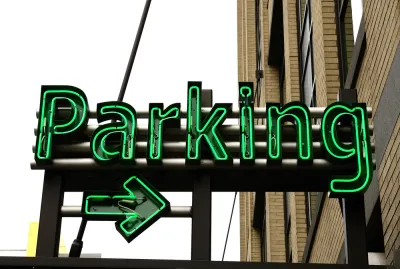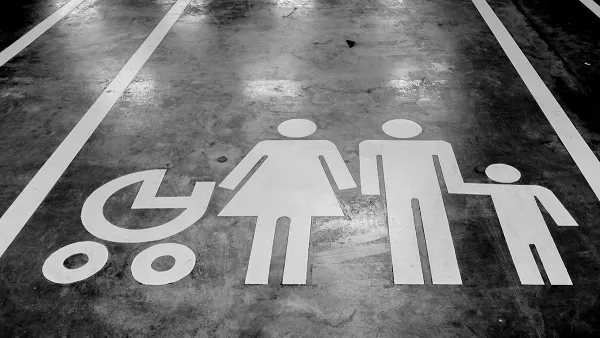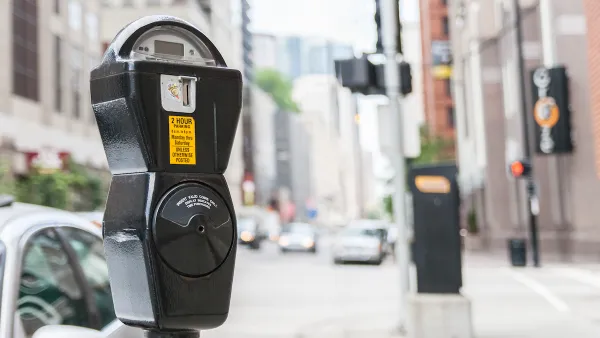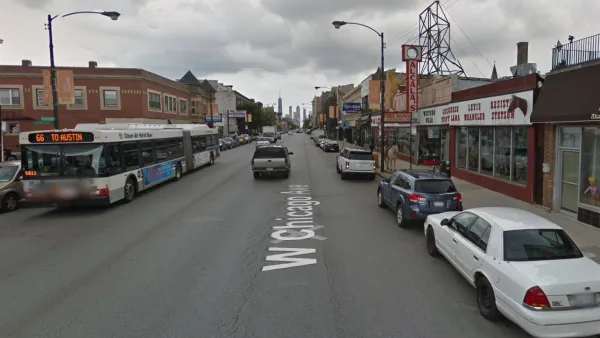Downtown businesses still need a diverse supply of high-turnover parking spaces, argues former downtown San Diego shopkeep, planning activist, and parking guru, Bill Keller.

For three decades, Bill Keller owned a downtown retail business, served on various planning and redevelopment boards, built an expertise in parking issues, and gained the respect of everyone with whom he came in contact. While no parking retrograde, he felt compelled (if somewhat sheepishly) to write an op-ed reminding people, urbanists in particular, that parking still fills an important need in America's downtowns. Keller concedes that residential minimum parking requirements, particularly along transportation corridors, need to be lessened. However, until America's downtowns achieve the density and transit infrastructure to support their retail sectors, parking is still important to providing a diverse mixed-use urban environment.
He also notes that type and configuration are as important as supply. For example, high turn-over and proximity to retail are important. Modernized parking meters that ensure turn-over, accept credit cards, are programmable, and in some locations, offer dynamic pricing—all are important to supporting businesses. In turn, ensuring parking has a reliable and adequate revenue stream to facilitate state of the art, efficient, and effective parking, will not only help retail businesses, but also help to eliminate surface parking lots. By example, he notes:
In Downtown San Diego, for example, street parking has been increased by switching from parallel to angled or perpendicular spaces. And meter revenue will soon be used to underwrite creation of 200 new spaces below East Village Green [underneath the park].
Keller is even able to invoke Jane Jacobs words to support his reminder.
[Jacobs] did say: “There must be a sufficiently dense concentration of people…” And: “The district must serve more than one primary function; preferably more than two. These must insure the presence of people who go outdoors on different schedules and are in the place for different purposes, but who are able to use many facilities in common.”
This result requires some suburbanites, both customers and employees. For Keller's full op-ed, please see the source article
FULL STORY: Why Parking Still Matters in America’s Downtowns

Analysis: Cybertruck Fatality Rate Far Exceeds That of Ford Pinto
The Tesla Cybertruck was recalled seven times last year.

National Parks Layoffs Will Cause Communities to Lose Billions
Thousands of essential park workers were laid off this week, just before the busy spring break season.

Retro-silient?: America’s First “Eco-burb,” The Woodlands Turns 50
A master-planned community north of Houston offers lessons on green infrastructure and resilient design, but falls short of its founder’s lofty affordability and walkability goals.

Test News Post 1
This is a summary

Analysis: Cybertruck Fatality Rate Far Exceeds That of Ford Pinto
The Tesla Cybertruck was recalled seven times last year.

Test News Headline 46
Test for the image on the front page.
Urban Design for Planners 1: Software Tools
This six-course series explores essential urban design concepts using open source software and equips planners with the tools they need to participate fully in the urban design process.
Planning for Universal Design
Learn the tools for implementing Universal Design in planning regulations.
EMC Planning Group, Inc.
Planetizen
Planetizen
Mpact (formerly Rail~Volution)
Great Falls Development Authority, Inc.
HUDs Office of Policy Development and Research
NYU Wagner Graduate School of Public Service




























